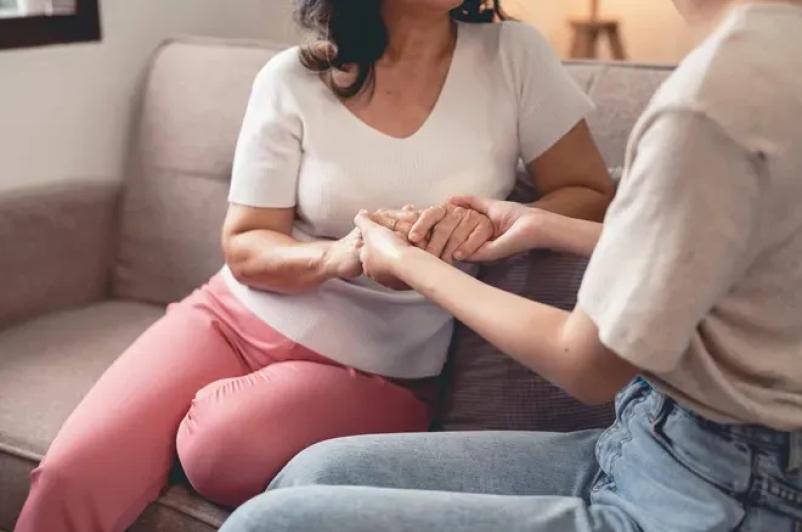
Suicide is a major public health concern, and prevention efforts are critical. However, due to the lack of awareness and stigma surrounding mental health, addressing suicide prevention stops many from having a conversation. Raising community awareness and breaking down the barriers is important to make progress in preventing suicide and accessing quality mental health care for those struggling.
According to the CDC, suicide is the 11th leading cause of death in the United States, and more than 50,000 people died by suicide in 2023. Suicide can be preventable, and if someone you know is struggling emotionally or having a hard time in life, you can be the difference in getting them the help they need.
The best way to prevent suicide is to recognize the warning signs. These signs can help you determine if a loved one is at risk for suicide, especially if the behavior is new, has increased, or seems related to a painful event, loss or change. Seek professional help right away if you or someone you know exhibits any of these signs or symptoms:
- Talking about wanting to die or end their life. This can include seeking ways to end their life, like looking for a way to kill themselves, like searching online or purchasing a weapon.
- Talking about feeling hopeless or having no reason to live, talking about feeling trapped or in unbearable pain.
- Talking about being a burden to others.
- Increased use of alcohol or other substances.
- Acting anxious or agitated, behaving recklessly, or isolating themselves.
- Exhibiting extreme mood swings, such as showing rage or talking about seeking revenge.
If a friend, co-worker, family member or someone you know talks or behaves in a way that makes you believe the person might attempt suicide, don't try to handle the situation alone. The Comprehensive Psychiatric Emergency Program (CPEP) Crisis Line (607-762-2302) is a community hotline number to call for anyone who is having suicidal thoughts, just needs someone to talk to or a family member who has questions regarding what to do.
In addition, these hotline numbers have trained professionals who can assess the situation and identify potential needs and healthy outcomes that alter suicidal thoughts or behaviors:
- In the United States, anyone needing help can call or text 988 to reach the 988 Suicide & Crisis Lifeline, available 24 hours a day, seven days a week, or use the Lifeline Chat. Services are free and confidential.
- U.S. veterans or service members in crisis can call 988 and press "1" for the Veterans Crisis Line. They can also text 838255 or chat online.
- The Suicide & Crisis Lifeline in the U.S. has a Spanish language phone line at 1-888-628-9454 (toll-free).
UHS leaders, medical staff and employees are working to raise public awareness about the issue of suicide and the steps to prevent it. A community-wide event called “Chalk the Walk, Have the Talk” will take place at UHS Binghamton General Hospital from 8:00 a.m. to 3:00 p.m. on Wednesday, September 11. People are encouraged to draw positive messages and images about suicide awareness and prevention. Representatives of the UHS Behavioral Health team will be there to inspire artistic expression and welcome discussions with anyone who feels they need support.
“Messages of hope and resilience impact the lives of everyone, and you never know if the person next to you or behind you is struggling and could use a hug. A simple phrase or an inspiring picture can save a life,” said Anastasia Spiratos, a behavioral health specialist at UHS Hospitals.
Additionally, UHS will participate in the “Out of the Darkness Walk” on Sunday, September 29, at the Mirabito Stadium in downtown Binghamton. The walk focuses on suicide prevention and is a great opportunity for our community to come together to bring hope and healing to those who need it most.
If you are struggling with your mental health, take the steps to seek help from mental health programs. Our programs at UHS Outpatient Mental Health Clinic are specially designed to meet the emotional and psychological needs of adults (18 and older) with mental health concerns. We strive to make our patients as comfortable as possible and provide them with a confidential, supportive environment to ensure quality care. For more information, please visit nyuhs.org.


